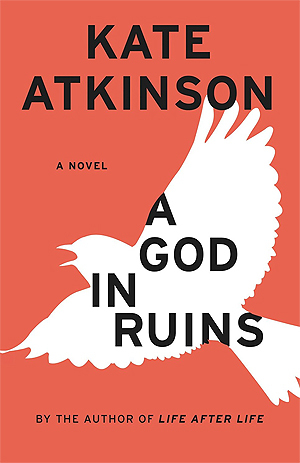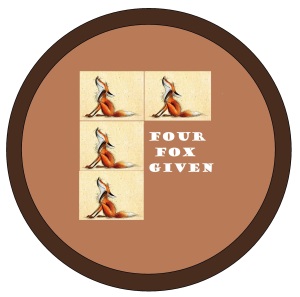
ABOUT THE AUTHOR:
Kate Atkinson was born in York and now lives in Edinburgh. Her first novel, Behind the Scenes at the Museum, won the Whitbread Book of the Year Award and she has been a critically acclaimed international bestselling author ever since.
She is the author of a collection of short stories, Not the End of the World, and of the critically acclaimed novels Human Croquet, Emotionally Weird, Case Histories, and One Good Turn.
Case Histories introduced her readers to Jackson Brodie, former police inspector turned private investigator, and won the Saltire Book of the Year Award and the Prix Westminster.
When Will There Be Good News? was voted Richard & Judy Book Best Read of the Year. After Case Histories and One Good Turn, it was her third novel to feature the former private detective Jackson Brodie, who makes a welcome return in Started Early, Took My Dog.
She is the author of a collection of short stories, Not the End of the World, and of the critically acclaimed novels Human Croquet, Emotionally Weird, Case Histories, and One Good Turn.
Case Histories introduced her readers to Jackson Brodie, former police inspector turned private investigator, and won the Saltire Book of the Year Award and the Prix Westminster.
When Will There Be Good News? was voted Richard & Judy Book Best Read of the Year. After Case Histories and One Good Turn, it was her third novel to feature the former private detective Jackson Brodie, who makes a welcome return in Started Early, Took My Dog.
DESCRIPTION:
A God in Ruins is about identity, dutiful love, and above all, self sacrifice. This book, a companion to Life After Life, follows mostly Edward Beresford “Teddy” Todd before and after his Second World War experiences.
In Life After Life Ursula Todd lived through the turbulent events of the last century again and again. In A God in Ruins, Atkinson turns her focus on Ursula’s beloved younger brother Teddy – would-be poet, RAF bomber pilot, husband and father – as he navigates the perils and progress of the 20th century. For all Teddy endures in battle, his greatest challenge will be to face living in a future he never expected to have.
REVIEW:
I enjoyed this book profoundly. It’s layered, nuanced, and complex. There’s plenty to explore here — it’s meaty with references to poetry that I have to admit made my hairs stand on edge. Duty, honour, and love are compelling themes and it got me thinking about what sort of life is a good life — what it is that etches your life with meaning? Is forsaking your own happiness and well being for country, spouse, children, and grandchildren the key to a life well lived? For Teddy, it seems so — if only for the reason that a whole life can be erased in the instant.
Atkinson holds the magical power to shape time to fit her story and this one moves seamlessly from Teddy’s last treacherous flights (fewer than half of RAF pilots actually survived World War II) to the 20th and 21st century, where Teddy is a husband, father, and grandfather. We get to meet his daughter Viola, who blames him for her mother’s premature departure and makes a mess out of her own life…and subsequently, the lives of her two children.
The key to this story lies in his title, which comes from Ralph Waldo Emerson: “A man is a god in ruins. When men are innocent, life shall be longer, and shall pass into the immortal, as gently as we awake from dreams.” Wartime is, the author argues, man’s greatest fall from grace and so she walks a fine tightrope: revealing the amazing heroism and self-sacrifice of the men such as Teddy and his crew yet showcasing how (in her own words) “whether our war on savagery did not, in the end, become itself savage as we attacked the very people – the old, the young, women – that civilisation is supposed to defend.” When Ursula asks Teddy, “and how do you define ‘innocence” anyway?”, attention must be paid.
Thou, I must admit I would've liked the book to have ended ten pages sooner. As I read the last sentence of "my" ending, my mind immediately went to the ending of D.M. Thomas's The White Hotel -- same theme but Thomas' rendering had much more of an impact on me. Following Atkinson's ending (and I understand why she chose it) is an "Author's Note". I don't usually mind these notes, but this detailed one both explained too much and seemed superfluous. I wonder if criticism to Life After Life prompted it.
prompted it.
 prompted it.
prompted it.
No comments:
Post a Comment